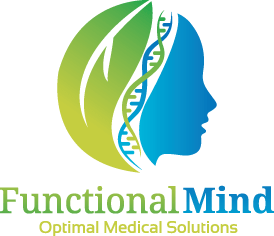How Gut Pathogens Impact Mental Health?
When we think about depression, we often focus on the brain — but did you know your gut might play a significant role in your mental health? The gut-brain connection is a fascinating and critical aspect of how our bodies function, and when harmful gut pathogens take over, they can trigger inflammation that disrupts mood-regulating brain chemicals. This imbalance may contribute to feelings of sadness, brain fog, anxiety, and even depression.
If you’ve been struggling with these symptoms and can’t find relief, it might be time to consider what’s happening in your gut.
The Gut-Brain Axis: A Two-Way Street
The gut and brain are constantly in communication through the gut-brain axis, a pathway that connects them via the vagus nerve. Think of this as a superhighway for signals, where information travels both ways. When everything is functioning well, this communication helps maintain mental clarity, stable moods, and overall well-being.
However, when harmful pathogens like E. coli, H. pylori, or yeast overtake the gut, they send inflammatory signals to the brain, disrupting this communication. This inflammation can interfere with the production of vital neurotransmitters like serotonin and dopamine. In fact, over 90% of serotonin — the “feel-good” hormone — is produced in the gut!
- Chronic fatigue
- Brain fog
- Mood swings
- Anxiety and sadness
Why It’s Important to Find the Root Cause of Your Depression
Many approaches to depression focus on treating symptoms, often with medications aimed at rebalancing brain chemicals. While these treatments can be helpful, they may not address the root causes of depression.
Factors like gut health, nutritional deficiencies, hormonal imbalances, and inflammation can all play a role in mental health. By understanding and addressing these underlying issues, you can treat depression at its source and achieve lasting wellness.
This is where a functional medicine approach comes in. At Functional Mind LLC, Dr. Achina Stein helps patients uncover the root causes of their depression, including potential gut-related issues, and creates personalized, holistic treatment plans.
If you’ve been feeling down, experiencing brain fog, or dealing with unexplained fatigue, it could be more than “just depression.” It might be time to explore the connection between your gut health and mental health.
